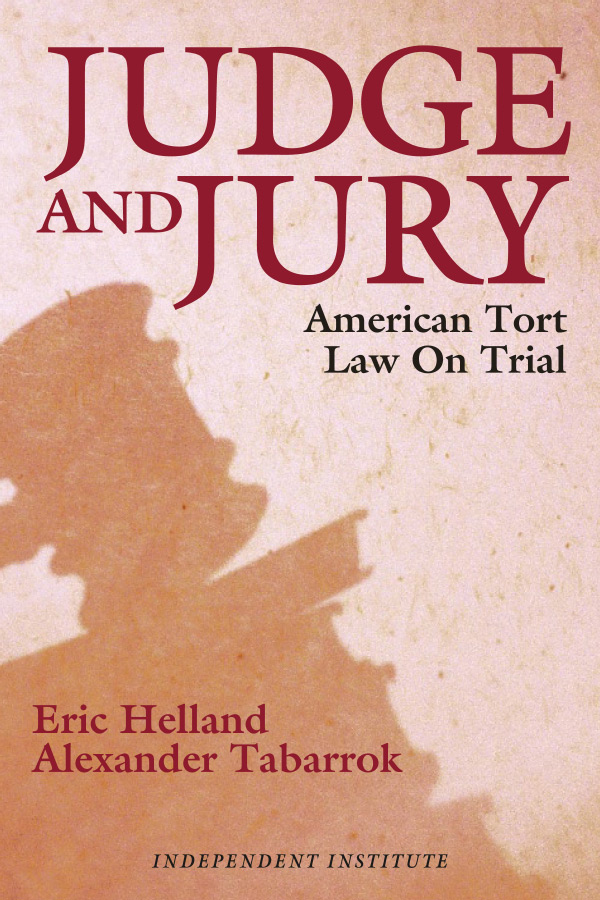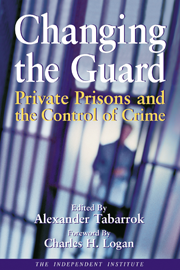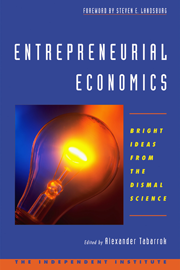Consider a firm that produces a product at a much lower price than its competitors, in the process saving consumers billions of dollars. The firm’s competitors then run to the government and ask it to stifle, restrain, or even break up their rival, all in the name of “consumer welfare” and “competition.” In a reasonable world, such pleas would be laughed straight out of court. But in the topsy-turvy world of antitrust, these sorts of self-serving claims are not only taken seriously, they are the conventional wisdom.
The situation I am describing is of course the Microsoft case. Microsoft lowered the price of its browser to zero when Netscape was charging $40-50 for its Navigator. Nicholas Economides, an economist at the Stern School of Business in New York, estimates that as a result, consumers have saved two billion dollars. Millions of internet users have understood this matter, yet this has all apparently eluded Judge Thomas Penfield Jackson who has found, Alice-in-Wonderland-like, the “fact” that Microsoft has “harmed” consumers.
Judge Jackson is to be credited, however, with choosing Judge Richard Posner as mediator for the Microsoft case. Judge Posner is the only person in the world who is a viable candidate for both the Supreme Court and the Nobel Prize in economics. His contributions to law and economics have been voluminous and profound. While no one can say for certain what a brilliant and original mind like Posner will bring to the case, there are numerous clues in his writings and methods of research.
Posner is skeptical of government regulation. In an early contribution to the public choice literature published in the Bell Journal of Economics, he writes that a growing body of case studies shows that “schemes of government regulation—whether of taxicabs, or producers of natural gas, or truckers, or airlines, or stock brokers, or new drugs, or electricity rates, or broadcasting - cannot be explained on the ground that they increase the wealth or, by any widely accepted standard of equity or fairness, the justice of the society.” Instead, Posner finds that much government regulation is a product of the power of special-interest groups. And, he is well aware that antitrust is no exception to this rule.
Judge Posner is also skeptical of that shibboleth of antitrust law, “tying.” In his textbook, Economic Analysis of Law, he writes, “ . . . tying is not a method by which a firm can use a monopoly in one market to obtain monopoly profits in a second market as well, nor is it likely in fact to foreclose access to the market to competing manufacturers of the tied product.” Most significantly, in his 1969 Stanford Law Review article, “Natural Monopoly and Its Regulation,” Posner is clear that breaking up a natural monopoly is unlikely to be beneficial to society. He writes, “The drawback to this luddite solution is that it would entail the sacrifice of known and substantial economic benefits - those following from efficient scale - for a conjectural improvement in performance from competition.” Exactly. Certainly no Luddite, Posner is unlikely to support the break up of America’s most successful high-technology firm, especially when it is not a natural monopoly.
Judge Posner also has a distinctive approach to law; he is a strong consequentialist. He decides cases not through arid legal discourse but by evaluating reams of empirical evidence. Importantly, the empirical evidence is in Microsoft’s favor. As Stan Liebowitz and Stephen Margolis show in their new Independent Institute book, Winners, Losers & Microsoft, prices in markets where Microsoft competes have fallen dramatically and much faster than in markets where Microsoft does not compete. Windows, for example, was priced much lower than IBM’s OS2. Over the past ten years, competition from Microsoft has dramatically pushed down the prices of word processors and spreadsheets.
Furthermore, by exhaustively evaluating hundreds of software reviews, Liebowitz and Margolis show that as with all software producers, Microsoft only succeeds when consumers rank its products superior to those of its competitors. Similarly, when Microsoft’s products rank poorly, they achieve poor market share. This is exactly the sort of analysis in which Posner specializes. Indeed, much of Liebowitz and Margolis’ work in the areas relevant to the Microsoft case was first published in the University of Chicago’s Journal of Law and Economics, home to the law and economics movement of which Posner is perhaps the greatest exponent.
Can Posner right the topsy-turvy world of antitrust? No, that would be asking for too much. Judge Jackson’s “findings” may well limit the options for mediation. But Posner understands economics, knows the corporate welfare dangers of antitrust protectionism, and is willing to examine the empirical evidence. Consumers should hence be grateful that he now has a hand in this landmark case.












